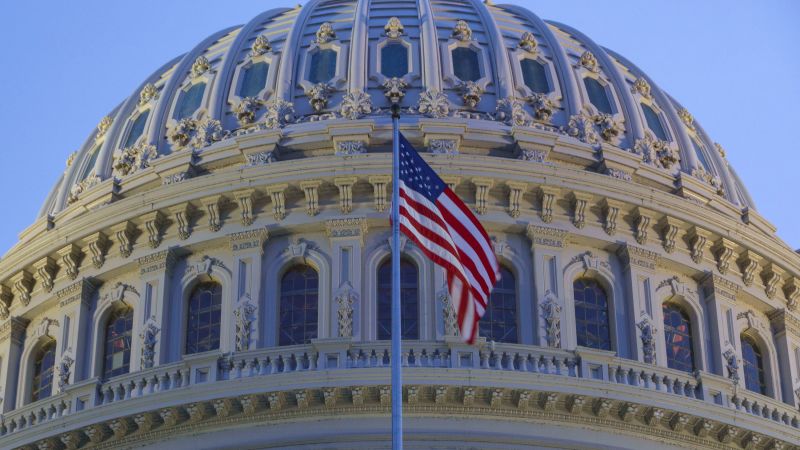On a recent Saturday, a heated exchange between President Donald Trump and Senate Minority Leader Chuck Schumer unfolded, igniting comments that indicate a profound impasse over the confirmation of Trump’s nominations. The rift escalated when Trump, in a pointed social media post, told Schumer to “go to hell.” This statement came amidst a backdrop of intense negotiation between Senate Republican leader John Thune, Schumer, and White House officials, all striving to break the deadlock that has left numerous Trump nominees pending approval.
Reports from sources familiar with the discussions reveal that the failure to reach an agreement could result in a postponement of Senate business, further complicating the process of confirming Trump’s appointments before the upcoming August recess. Tensions have elevated, and the clock is ticking, as both sides scramble for a resolution to the stalemate. Trump’s post on social media signified a significant downturn in these negotiations, labeling Schumer’s terms as “egregious and unprecedented.” Such language underscores the frustration and division that have characterized this political moment.
The situation is exacerbated by the Democrats’ strategy of delaying the confirmation of Trump’s lower-level nominees. They have the leverage to extend Senate sessions and prolong voting by employing procedural tactics designed to challenge the timing and efficiency of the process. Thune, as the Senate Republican leader, finds himself in a position where he must maneuver around these obstructions to facilitate the confirmations, which typically would not take this long to finalize.
Amidst these tensions, Schumer has made it clear that he is not willing to give his assent to confirm a bulk of Trump’s nominees without substantial concessions. His list of demands reportedly includes the restoration of federal funds for a variety of key programs, particularly emphasizing the National Institutes of Health and foreign aid initiatives. Moreover, Schumer is advocating against the potential for Trump to propose additional funding cuts, known in political parlance as “rescissions,” following a contentious $9 billion budget cut package that had recently received approval.
The stakes extend beyond just party politics; the chance for vital federal funding for influential programs hangs in the balance. Schumer’s insistence on negotiations reflects a fundamental struggle over resource allocation and the priorities of different parties. The Democrats are attempting to leverage this process in an effort to address what they view as critical needs for their constituents, while the Republicans, led by Trump, perceive any delay or opposition as an affront to their legitimacy and operational capacity to govern.
In an earlier appeal, Trump urged the Senate to remain in session and forgo the traditional recess until his nominees received the necessary confirmations. As the pressures mount, Trump took to social media to relay a somewhat incendiary message directed at Schumer, urging him to disregard his demands and instead communicate the perceived aggressiveness of the Democrats to their voters. Trump’s remarks highlighted an effort to frame the Republican Party’s actions as beneficial while underscoring the risks of inaction by the Democratic counterparts. By instructing Schumer to “explain to your constituents what bad people the Democrats are, and what a great job the Republicans are doing,” Trump aims to galvanize public sentiment in favor of his administration’s agenda.
This development represents a culmination of political maneuvering that underscores the stark divisions in American politics today. As both parties grapple with their respective agendas, the outcome of this negotiation could significantly impact the functionality of the Senate and the overall legislative landscape leading into future sessions. The fragmented environment hints at a broader struggle for power in which both strategy and public perception play critical roles in shaping the direction of governance.











